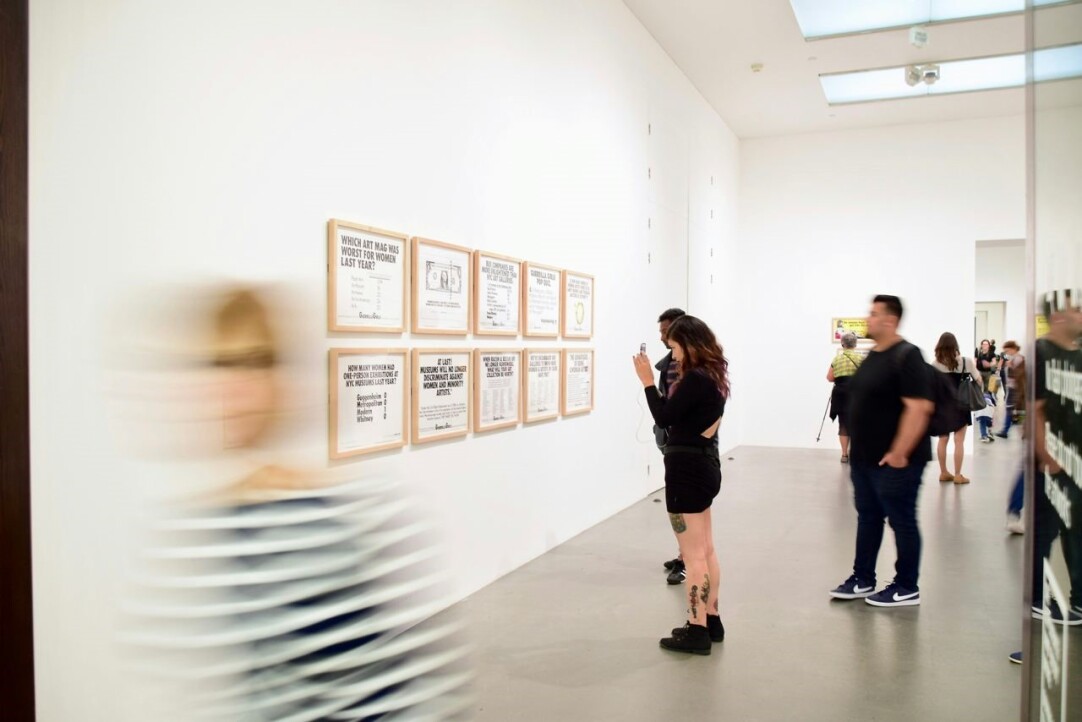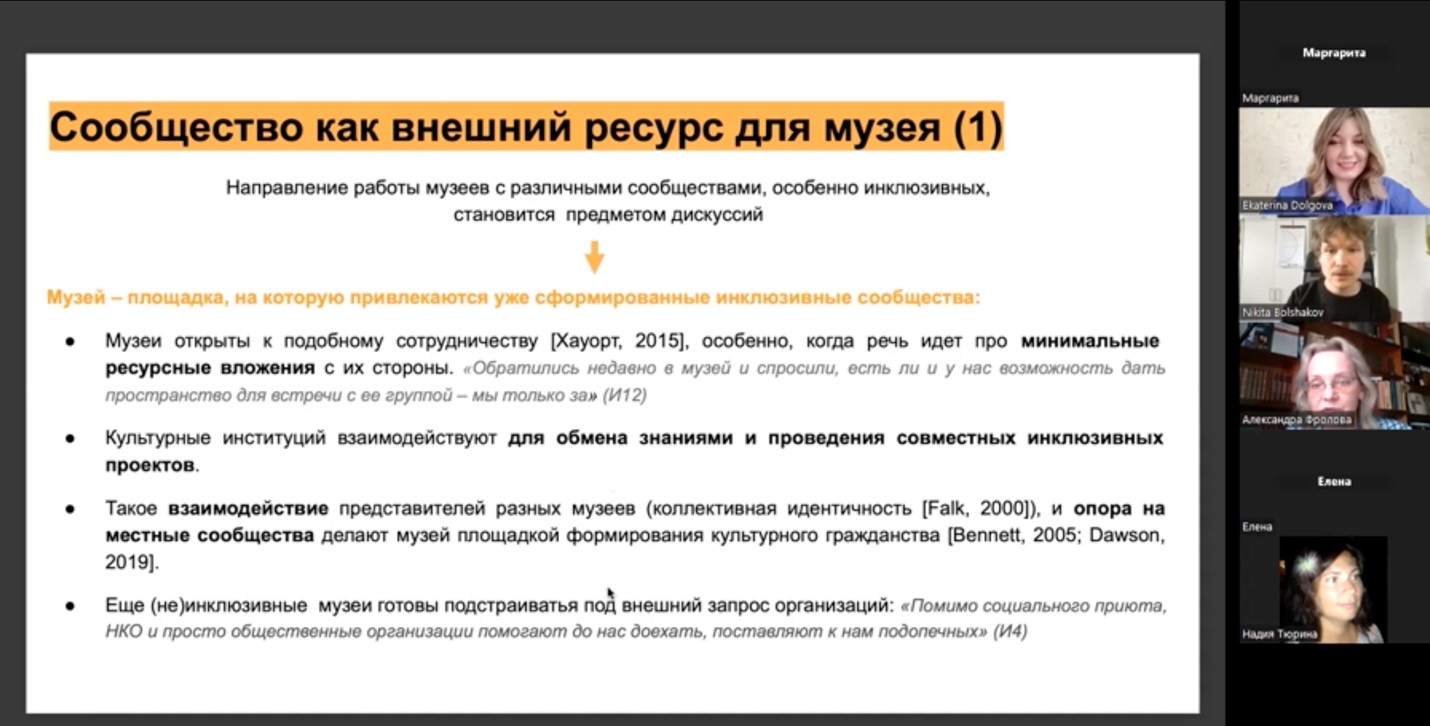Nikita Bolshakov, Ekaterina Dolgova, and Maria Malofeeva made a presentation at a joint seminar of the Institute of Oriental Studies of the RAS and the Institute of Ethnology and Anthropology of the RAS
On April 13, 2024, a seminar was held by the group for the study of disability in the countries of the East of the Institute of Oriental Studies of the RAS and the group of the anthropology of disability of the Institute of Ethnology and Anthropology of the RAS, within the framework of which the staff of the IL SIR presented the preliminary results of a study under the grant of the RSF “Cultural citizenship and local solidarity: the experience of social inclusion audiences of Russian museums.»

From our Laboratory, leading researcher Nikita Bolshakov with research assistants Ekaterina Dolgova, and Maria Malofeeva spoke at the seminar with a report “Formation of communities of people with disabilities in a modern museum.”
The relevance of considering the museum as a platform for the formation of various communities is confirmed by the fact that the modern museum is an agent of social change, while “inclusion” and “accessibility” have become one of the most relevant trends in the development of modern museum projects. The transformation of the role of the museum has led to the fact that the modern museum has become an agent for the formation of cultural citizenship. The speakers noted that museums, in their activities, based on these principles and understanding inclusion in a certain way, represent certain features of local identities, include certain themes in their public or exhibition projects, work with excluded groups or address specific inclusive communities, implementing the principle of a culture of participation. The project “Cultural Citizenship and Local Solidarity: Experience of Social Inclusion of Russian Museum Audiences” (RSF grant No. 22-78-10098) is devoted to the analysis of these processes, the interim results of which were presented at the seminar by the working group participants.
The focus of museums on communities, especially inclusive ones, has become a popular topic of discussion in recent years. Based on the results of the analysis of available interviews, Nikita, Ekaterina and Maria identified several categories in the museum for work on the topic of researching museum communities (ready-made inclusive communities as an external resource, professional inclusive communities), and also presented the potential of museums in forming their communities on the topic of inclusion.
During her speech, Ekaterina gave examples of how museums can passively act as a platform (usually in a physical sense) on which interaction between organizations external to the museum and related to inclusive activities becomes possible. A large role in the development of this is played by various state, public, and grant-giving organizations, with which mutually beneficial cooperation is built on a common territorial and spatial location.

Ekaterina also noted that people with disabilities often take an expert role and are involved in the museum as external advisers, acting as gatekeepers [Latour, 2014], due to this it becomes possible to form a professional inclusive community based on the museum, which consists of experts with disabilities, so and without. In addition, Maria noted that museums can independently take on the function of forming new communities with the participation of people with various forms of disabilities. However, there are barriers to this that can be overcome through specialized training of employees and the support of external agents.

The group for the study of disability in the countries of the East of the Institute of Oriental Studies of the RAS and the group of the anthropology of disability of the Institute of Ethnology and Anthropology of the RAS were very interested in the presentation of their colleagues with the preliminary results of the research on the RSF project, which gave rise to an active discussion and exchange of experience in researching the modern museum as a forum for dialogue and cooperation. Issues were raised such as the participation of agents of different statuses in the development of inclusion in museums, the limited resources for this, and other factors depending on the region, as well as the importance of personal and local initiatives that serve as support in the formation of museum communities. The seminar participants formulated directions for developing research on the topic of communities and concluded that to be ready to form communities based on the museum, systematic work with an individual visitor with a disability and the topic of inclusion is necessary, as well as the rootedness of inclusive work with different groups of visitors.


